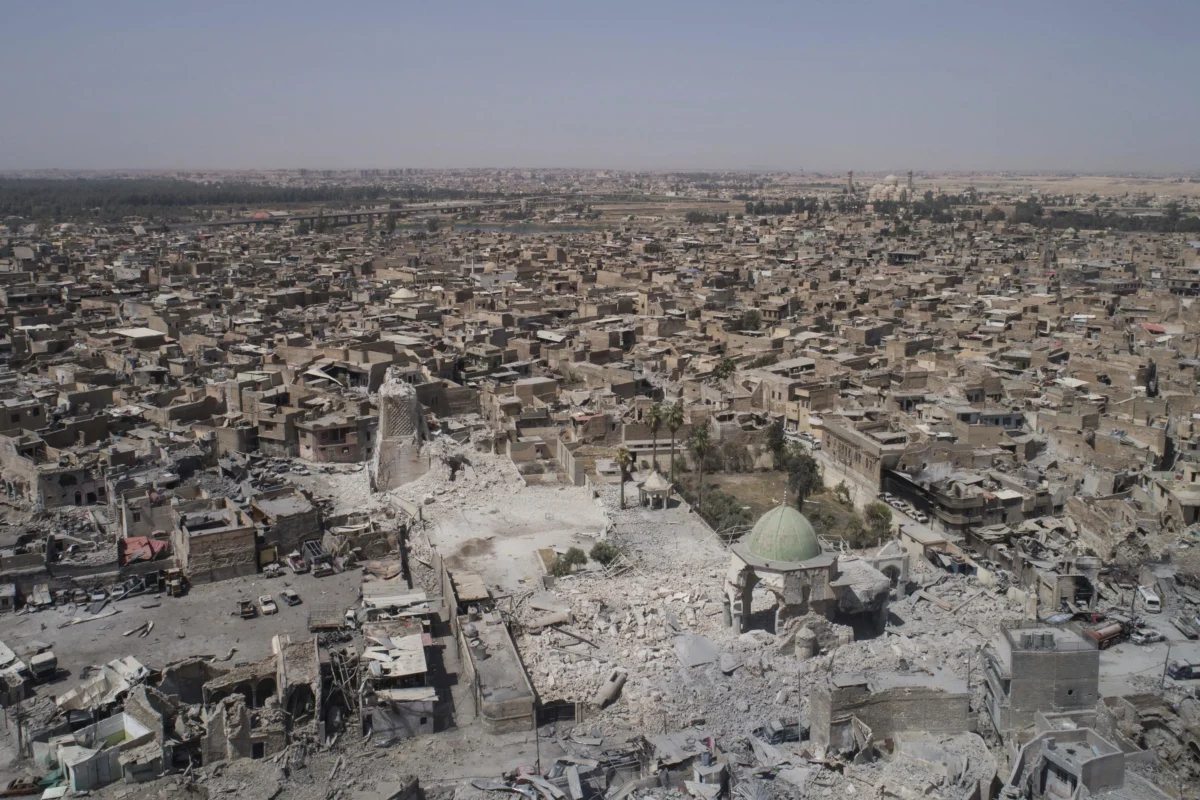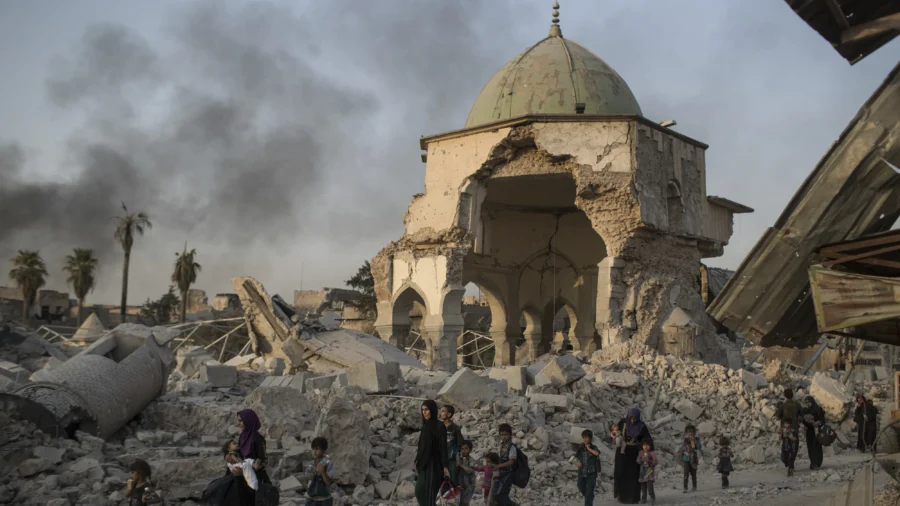Five bombs, planted by ISIS terrorists, have been discovered by the United Nations’ cultural agency within the walls of a historic mosque in Iraq, according to a statement by UNESCO on June 29.
The bombs were discovered inside the al-Nouri Mosque, famous for its 12th-century leaning minaret, in the city of Mosul in northern Iraq.
The mosque, which is also spelt al-Nuri, was destroyed by ISIS in 2017 and has been a focal point of UNESCO’s restoration efforts since 2020.
According to the agency, the explosive devices, which were capable of destruction on a significant scale, were located inside the southern wall of the Prayer Hall on June 25.
“These explosive devices were concealed within a specially rebuilt section of the wall. Iraqi authorities were promptly notified, secured the area, and the situation is now fully under control,” it said in a statement.
The agency went on to say that one of the explosive devices had been safely defused and removed. The remaining four “are interconnected and will be safely disposed of in the coming days.”
Meanwhile, all on-site reconstruction operations by UNESCO were halted by request of the Iraqi authorities. The authorities further asked for the evacuation of the entire complex pending the disarmament of all remaining devices.
A decade ago, the mosque sustained substantial damage, leading to the near-destruction of the building.

The terrorist group’s deceased leader, Abu Bakr al-Baghdadi, had proclaimed an Islamic caliphate from the mosque at the time and Islamist extremists detonated a series of explosives in the prayer hall during the battle to “liberate” Mosul in 2017.
Efforts to clear the city of Mosul of explosives are still ongoing, as the discovery of the explosives marked additional challenges amid further efforts to reconstruct the city’s devastated urban areas.
Much of the city, however, still remains in ruins, and reconstruction efforts are often hampered by the presence of minefields in the wider area. However, the United Nations has supported international efforts to clear these minefields, in addition to aiding the city’s recovery.
A full reconstruction of the al-Nouri Mosque is planned for December, UNESCO said, which according to the organization will mark the end of the stigma surrounding Mosul from the Daesh occupation. “Daesh” is the Arabic acronym for ISIS.
Since the declaration of the Islamic caliphate by ISIS across much of Iraq and Syria a decade ago, many prominent terrorist leaders have been removed, and the wider area is no longer subject to control by Islamic extremists. News headlines about the terrorist group’s action and influence have also drastically declined globally.
Nonetheless, the group remains active and is still recruiting members, with lethal terrorist operations continuing in places including Iran and Russia even earlier this year, indicating that the threat posed by ISIS and its extremist ideology remains.
Sleeper cells of the group in Iraq and Syria continue to carry out attacks against government forces in both countries as well as on U.S.-backed Syrian fighters, coinciding with negotiations between Iraq and Washington over a potential withdrawal of U.S. troops.
NTD has reached out to UNESCO for comment.
The Associated Press contributed to this article.

